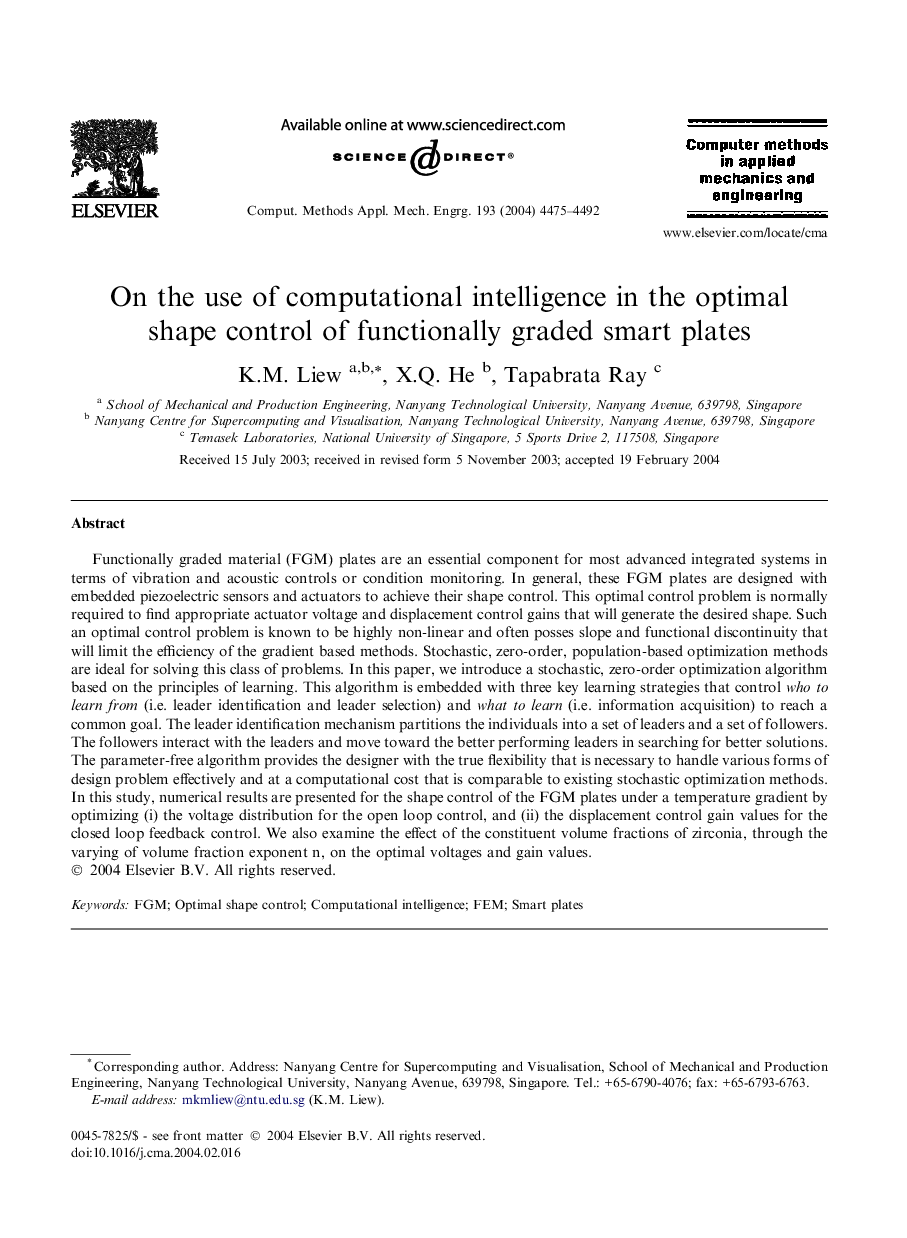| Article ID | Journal | Published Year | Pages | File Type |
|---|---|---|---|---|
| 500330 | Computer Methods in Applied Mechanics and Engineering | 2004 | 18 Pages |
Functionally graded material (FGM) plates are an essential component for most advanced integrated systems in terms of vibration and acoustic controls or condition monitoring. In general, these FGM plates are designed with embedded piezoelectric sensors and actuators to achieve their shape control. This optimal control problem is normally required to find appropriate actuator voltage and displacement control gains that will generate the desired shape. Such an optimal control problem is known to be highly non-linear and often posses slope and functional discontinuity that will limit the efficiency of the gradient based methods. Stochastic, zero-order, population-based optimization methods are ideal for solving this class of problems. In this paper, we introduce a stochastic, zero-order optimization algorithm based on the principles of learning. This algorithm is embedded with three key learning strategies that control who to learn from (i.e. leader identification and leader selection) and what to learn (i.e. information acquisition) to reach a common goal. The leader identification mechanism partitions the individuals into a set of leaders and a set of followers. The followers interact with the leaders and move toward the better performing leaders in searching for better solutions. The parameter-free algorithm provides the designer with the true flexibility that is necessary to handle various forms of design problem effectively and at a computational cost that is comparable to existing stochastic optimization methods. In this study, numerical results are presented for the shape control of the FGM plates under a temperature gradient by optimizing (i) the voltage distribution for the open loop control, and (ii) the displacement control gain values for the closed loop feedback control. We also examine the effect of the constituent volume fractions of zirconia, through the varying of volume fraction exponent n, on the optimal voltages and gain values.
